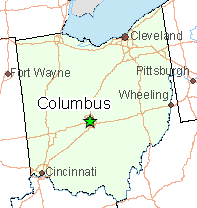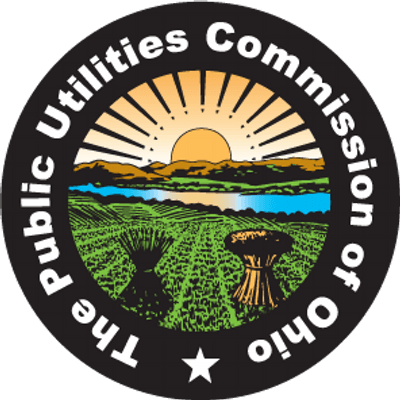 Every once in a while, a brazen utility service company will come to our attention that is so egregious in its conduct and pricing, it makes Comcast’s business practices resemble Amateur Hour.
Every once in a while, a brazen utility service company will come to our attention that is so egregious in its conduct and pricing, it makes Comcast’s business practices resemble Amateur Hour.
Not for lack of trying, Comcast’s worst abuses pale in comparison to the conduct of a nasty little firm called Nationwide Energy Partners (NEP). No customer that endures this pseudo-utility will likely ever forget its name, or the $500+ utility bills the company is known to send to renters in Ohio.
Ohio’s deregulated utility market has opened the door to speculators, multi-level marketing scams, and the new and growing practice of “submetering,” — rebilling renters for utility usage charges on behalf of the property owner. The epicenter of some of the worst abuses is in Columbus, where two “submetering” companies with dubious records and close ties to property developers are getting rich charging customers up to 97% more than other Columbus households pay for basic utilities.
 Four families are now taking NEP to court, alleging the company is lying about its rates, overcharging customers, and engineering a monopoly business model that does not allow customers to switch utilities, leaving them captive to the threat of eviction and property liens for those that fall behind on their bills.
Four families are now taking NEP to court, alleging the company is lying about its rates, overcharging customers, and engineering a monopoly business model that does not allow customers to switch utilities, leaving them captive to the threat of eviction and property liens for those that fall behind on their bills.
Ralph Cantore in Columbus is well-acquainted with NEP. It’s the utility company that has billed him $4oo-525 a month for electricity and water service for his three-bedroom apartment.
“I really enjoy the location,” Cantore told The Columbus Dispatch about Olentangy Commons apartments. “I enjoy everything about it, except the ridiculous energy bills.”
Courtney VanSickle, a registered nurse, says her bills have been as high as $450 a month at her two-bedroom apartment.
Those are two of approximately 30,000 customers served by NEP, many in central Ohio where renters served by these third party companies are often shocked by astronomical utility bills. Another firm, American Power & Light, was founded in 2003 by property developer Don Kenney, Sr. The “energy company” shares office space with Kenney’s other ventures, including Ardent Property Management, Village Communities and Metro Development. Kenney’s companies have built more than 35,000 apartments or condominium units, many coincidentally relying on AP&L as the monopoly provider of utility service.
Nationwide Energy founder and CEO Mike DeAscentis Jr., was frank with investors about the real aim of NEP in a 2010 presentation: “How we make money is we buy power at a commercial rate and we resell it at the residential rate and there is arbitrage in the rate structure,” he said, according to a transcript obtained by The Dispatch.
 DeAscentis isn’t an energy man from way back. He’s the CEO of Lifestyle Communities, an apartment developer, which coincidentally contracts with NEP for utility services.
DeAscentis isn’t an energy man from way back. He’s the CEO of Lifestyle Communities, an apartment developer, which coincidentally contracts with NEP for utility services.
NEP pays developers, owners, and/or managers of condominiums, apartment buildings, and multi-family dwellings for contracts offering exclusivity to provide gas, electric, water, and sewer service to tenants. Tenants are informed at closing or move in that NEP is the only utility service provider available to them and they must sign a service agreement with NEP to obtain basic utilities.
NEP is well aware of the favorable position this puts the company, telling customers on its website:
“At NEP we know you choose us because you have to.”
Under Ohio’s deregulation strategy, utilities are still supposed to be mildly regulated to guarantee quality of service, establish proper disconnection policies, and follow basic guidelines to help manage the competitive market. Except NEP was created at the outset to skirt those rules.
 “NEP is the new utility,” DeAscentis said in the 2010 presentation. “We do everything that a utility does except generate power. NEP builds electrical-distribution systems for residential communities, and we were very deliberate when we started the business 10 years ago to put it in a place where it was not regulated.”
“NEP is the new utility,” DeAscentis said in the 2010 presentation. “We do everything that a utility does except generate power. NEP builds electrical-distribution systems for residential communities, and we were very deliberate when we started the business 10 years ago to put it in a place where it was not regulated.”
That is what has allowed NEP to effectively operate as an unregulated monopoly. If customers can’t or won’t pay, the normal protections extended to customers for utility services that protect life do not apply. NEP and AP&L can cut service at will for non-payment, even during winter when a customer’s safety could be at risk. If residents are late with payments, American Power will sometimes evict them, even if the consumer’s rent is up to date and even though American Power is not the landlord. Another contract provision allows companies to place liens on personal property for non-payment. Both companies have sought hundreds of evictions since 2002. Nationwide appeared to have stopped seeking evictions in 2011.
“Once you enter this slippery slope, where a third party has the ability to order evictions, that’s shocking,” Emily Crabtree, a lawyer with Columbus Legal Aid who has defended American Power customers, told The Dispatch in 2013.
The centerpiece of the Ohio lawsuit is the allegation NEP charges residents substantially more that what regulated or municipal providers charge their customers. A 2013 investigation by The Dispatch found that once all the fees and surcharges were calculated, customers paid up to 94% more than if they had an account directly with the regulated or municipal utility serving the area.
“This rate arbitrage is how NEP makes money,” the lawsuit claims.
The plaintiffs claim NEP won’t disclose its energy charges, making it difficult for customers to compare what they are paying for service in contrast with their non-NEP neighbors.
“NEP’s website falsely states that ‘NEP is contractually bound to match the rates of the host utility for both electric and water,’ that ‘rates [customers] are charged by NEP are the same residential rates that are charged by [their] current utility provider,’ and that customers ‘will not pay a higher rate for [their] electric and water as a NEP customer.'”
Ironically, NEP’s CEO stated that NEP “adds value” to services traditionally provided by public or private utility companies.
“The only entity that benefits from NEP’s business model is NEP,” the lawsuit claims.
[flv]http://www.phillipdampier.com/video/Columbus Dispatch Submetering 10-20-13.flv[/flv]
The Columbus Dispatch investigated submetering back in 2013, and the large spike in consumer complaints that resulted from the practice. (4:24)
Consumers, when they find out about the submetering practice, are shocked to discover it is completely legal under Ohio law.
Guy Fulcher, a former American Power customer who now lives in Galena, got the pass-the-buck treatment when he complained.
“The attorney general back then was Richard Cordray, and his office just rolled over and said, ‘We don’t regulate that,’” he said. “They said to go to [Ohio’s Public Utilities Commission]. PUCO said, ‘We don’t regulate that.’”
When other renters have complained to regulators, attorneys representing submetering companies argue the complaints should be ignored or rejected for lack of standing.
“This complaint should begin and end with the determination that Mr. Whitt lacks standing to bring a complaint concerning utility services (at his condo) because he is not the utility customer,” said Howard Petricoff, attorney for Nationwide Energy, in a filing.
According to the company, the true customer is the condo association, not each resident, reported the newspaper. Nationwide Energy has a long-term contract with the association to act as the exclusive reseller of utility services.
AE&P spokeswoman Terri Flora said the responsibility falls squarely on the shoulders of renters.
“As people make choices to rent in an apartment, they need to be fully aware of what that choice involves,” Flora told the newspaper about the possibility of paying higher prices with a submeter company. “It’s a different environment than consumers are used to.”
Customers in other states beyond Ohio should also be on the lookout because submetering is legal in several other states. Where money can be made, submeterers are sure to expand. NEP is already active in Ohio, New York, New Jersey, Pennsylvania, Tennessee, and Kentucky. Submetering, with an allowance for charging a substantial markup, was legal in Alabama, Georgia, Kansas, Pennsylvania, South Carolina, Utah and Washington as of 2013.


 Subscribe
Subscribe
Looks like these companies get excellent returns on money invested in politicians.